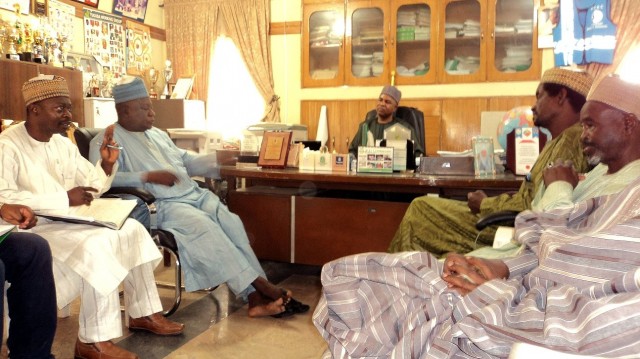[vc_row][vc_column width=”1/1″][vc_column_text]
Trailblazing teacher database popular in Nigeria
By Jossey Ogbuanoh and Jennifer Brookland
[/vc_column_text][/vc_column][/vc_row][vc_row][vc_column width=”2/3″][vc_column_text]

The first teacher management database of its kind is already in high demand among government offices in Nigeria.
The Teacher Management Information System (TMIS) is a human resources tool that helps school administrators track every teacher’s postings, qualifications, training, vacation time, disciplinary action, biodata and personal history.
More than a tracking tool, TMIS will be useful in decision-making too, according to government officials at the State Universal Basic Education Board (SUBEB).
“SUBEB Sokoto intends to take a step further and select the participants for teacher training by SUBEB using the just completed TMIS database,” says Abdullahi Gobir, Director of Quality Assurance for SUBEB Sokoto. “This will ensure that the participants selected are those teachers currently teaching in the relevant areas at the classroom level.”
TMIS was developed by the Nigeria Northern Education Initiative (NEI), a four-year USAID-funded program that strengthens two Nigerian states’ ability to provide teacher education and training, and supports vulnerable children’s access to basic education.
The software has been deployed through SUBEB in Bauchi and Sokoto states, as well as in seven Local Government Education Authorities (LGEA) that are serving as pilots.
Bauchi SUBEB Chairman Alhaji Abdullahi Dabo called on NEI to urgently conduct statewide training for these LGEAs on how to use TMIS, since they are the first point of contact for teachers.
SUBEB coordinates the implementation of Nigeria’s Universal Basic Education Program at the state and community level.
It’s not the only state agency to recognize the value in management tools like TMIS. State bodies in Sokoto and Bauchi have issued a cascade of requests for system strengthening as NEI begins to wind down in advance of its end date in March 2014.
The Sokoto state Ministry of Budget and Economic Planning requested that NEI provide its Budget Planning Tool—a software developed by the program that tracks resource allocation by activity.
The corresponding Ministry in Bauchi state made a similar request. Both states are now using the Budget Planning Tool to prepare the 2014 budget, and have begun meeting with state commissioners to inform them of the tool.
Bauchi state’s Ministry of Religious Affairs requested NEI input in articulating its own budget for non-formal learning centers.
Its Ministry of Education asked that TMIS expand to include private school teachers. And the state Agency for Orphans and Vulnerable Children entreated NEI to provide guidance and build up its monitoring and evaluation capacity.
“State agencies are evidently eager to absorb the technical support of NEI in strengthening their planning and management systems,” says NEI Chief of Party Ayo Oladini. “They appear primed to take ownership of the interventions left by NEI and continue scaling them up for improved performance in basic education.”[/vc_column_text][/vc_column][vc_column width=”1/12″][/vc_column][vc_column width=”1/4″][vc_widget_sidebar sidebar_id=”sidebar-primary”][/vc_column][/vc_row]